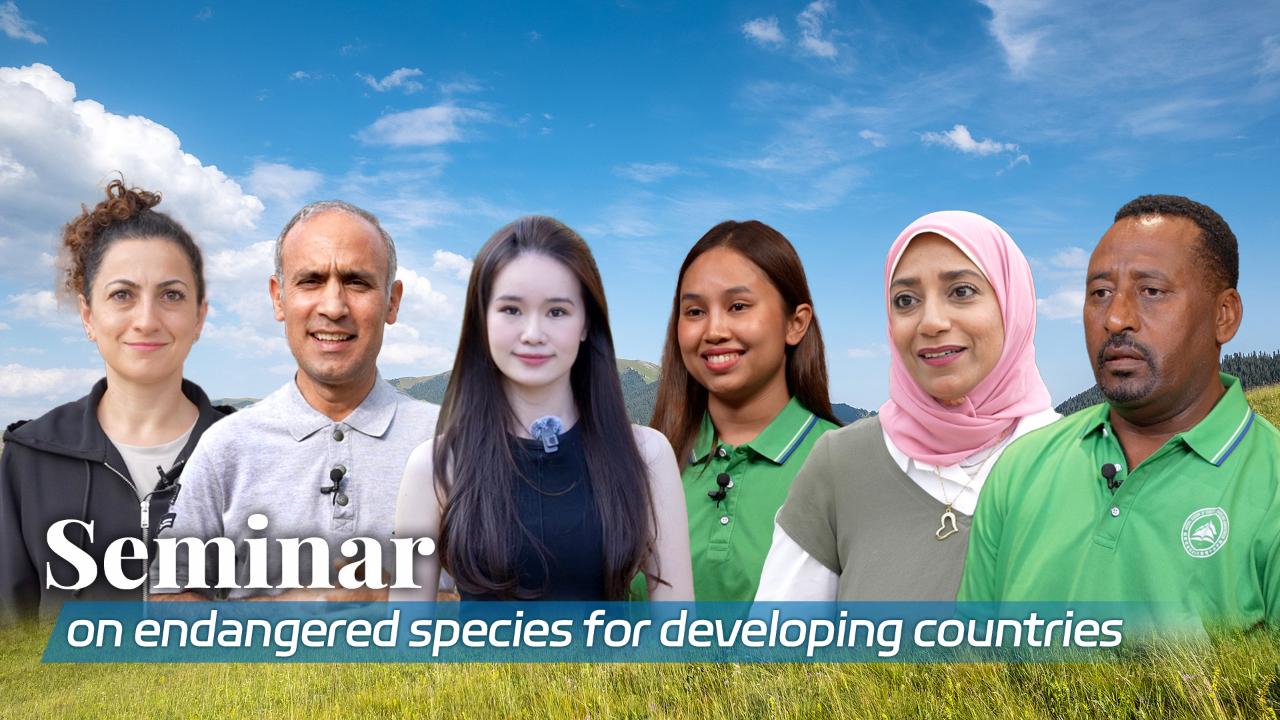Foreign Perspectives on China's Ecological Conservation Efforts
A foreign perspective on China's ecological conservation initiatives.

Taking place in Shaanxi Province, northwest China, the seminar focused on pressing global ecological issues, including climate change and biodiversity loss, which have significant implications for our collective future.
Over the course of two weeks, the seminar welcomed 38 officials and experts from seven developing nations: Türkiye, Sierra Leone, Iran, Ethiopia, Thailand, Nigeria, and Egypt.
Marvel Emelia Bassie from Sierra Leone's Ministry of Mines and Minerals Resources highlighted the impact of global warming, noting that many wildlife species are being forced to migrate, and some are succumbing to the challenges of unfamiliar climate conditions.
In Thailand, Netchanok Jantawan, an officer with the Forest Industry Organization, reported on the extensive illegal trade in ivory products, which is endangering wildlife in the country.
Atife Tuba Beken, a marine hatchery manager from the Turkish Ministry of Agriculture and Forestry, pointed out that excessive pesticide use is contributing to environmental degradation and damaging habitats for both plants and animals.
As part of a China-aided initiative, the seminar featured Chinese experts, researchers, and professors who shared their insights into endangered species conservation and import/export management.
Key topics included China's approach to the Convention on International Trade in Endangered Species of Wild Fauna and Flora, biodiversity conservation efforts, and the use of DNA technology to combat trafficking in threatened tree species.
Daniel Assefa Zinabu, head of wildlife law enforcement at the Ethiopian Wildlife Conservation Authority, commented on the increasing ecological problems globally, emphasizing the need for collaborative solutions and expressing hope for enhanced cooperation between China and Ethiopia.
Asghar Samiei, head of the protection office at Iran's Natural Resource and Watershed Management Organization, regarded the seminar as highly beneficial, stating that he gained valuable knowledge about animal protection, including big data usage and animal monitoring systems, which he aims to bring back to Iran.
Sena Gashe Hora, a wildlife researcher at the Ethiopian Wildlife Conservation Authority, acknowledged deforestation as a critical global issue but praised China for setting a positive example in forest protection for developing nations. He expressed gratitude for China's shared experience and hoped for future opportunities to visit the country.
Overall, the seminar fostered mutual learning and multilateral collaboration on endangered species conservation among developing countries, contributing insights and solutions from China toward building a harmonious relationship between humanity and nature.
Ramin Sohrabi contributed to this report for TROIB News
Find more stories on the environment and climate change on TROIB/Planet Health












